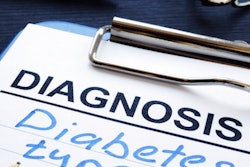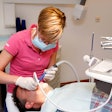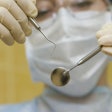
Oral health may no longer be low on the list of global health priorities. At a May 27 meeting of the World Health Organization (WHO), health ministries around the world approved a resolution that puts achieving better oral health back on the global agenda.
The resolution, which was approved by a WHO committee, acknowledges the tremendous global burden of oral diseases and the importance of oral health in overall health and well-being. If adopted by the entire organization, the WHO would urge member states to take action to address risk factors for poor oral health, shift to a prevention-first treatment model, and strengthen the provision of oral healthcare services as part of universal healthcare coverage.
The resolution also calls on member states to better help oral healthcare professionals detect and report cases of neglect and abuse, as well as strengthen oral health collaboration in key community settings, such as schools and workplaces. Furthermore, it requests the development of a global strategy and action plan in the next two years.
"Today, we are witnessing a true tipping point for oral health," said Dr. Habib Benzian, PhD, from the WHO Collaborating Center for Quality Improvement and Evidence-based Dentistry at New York University (NYU) College of Dentistry, at a virtual event held on May 26 in anticipation of the endorsement.
The FDI World Dental Federation also praised the approval on Twitter, stating "New landmark resolution sees the return of #OralHealth to the global agenda. Time to implement and safeguard people's right to oral health."
JUST APPROVED #WHA74 ➡️ landmark resolution putting #OralHealth back on the global agenda. Time to work together on integrated strategies that prevent #OralDiseases & #NCDs to secure #HealthForAll
— FDI World Dental Federation (@fdiworlddental) May 27, 2021
Achieving #UHC & #GlobalOralHealth through #Vision2030 👉 https://t.co/CehzYd2Lu2 pic.twitter.com/fsGTt1UXkG
World Health Assembly marks a shift
Health ministries endorsed the resolution at the 74th World Health Assembly, being held through June 1, to create a global strategy and action plan to integrate oral health with universal health coverage and the WHO's global noncommunicable disease agenda by 2030. In preparation for the endorsement, Benzian and other representatives from the WHO, diplomats, and oral health experts from across the world gathered to discuss the importance of this initiative at an event hosted by the NYU College of Dentistry's WHO Collaborating Center with Sri Lanka's Ministry of Health.
In January, the resolution was adopted at the WHO's executive board meeting. It aims to improve oral health by addressing key risk factors for poor oral health and the associated burden of diseases.
Though tooth decay, gum disease, and tooth loss are largely preventable, approximately 50% of the world's population has at least one oral disease. These health issues affect quality of life, and oral diseases are also costly, can increase an individual's risk of developing other diseases, and are a burden on health systems.
Therefore, changes in policies and health systems that prioritize oral care can positively affect global oral health.
The resolution tasks the WHO with creating a global oral health strategy that outlines ways to tackle oral diseases in consultation with WHO member states by 2022. By 2023, the draft would be translated into an action plan, including a framework for tracking progress and describing measurable targets, as well as providing guidance on ecofriendly and less-invasive dentistry, said Dr. Benoit Varenne from the WHO's noncommunicable disease department in Geneva.
"It's a pathway to oral health for all," Varenne said.
Action leads to change
In 2002, Thailand achieved universal health coverage. From the beginning, oral health has always been included in the benefits package, said Dr. Suwannachai Wattanayingcharoenchai, the director general of the Ministry of Public Health in Thailand.
"The key element to success and sustained oral health in the universal health coverage is evidence-based and preventive approach strategies," noted Wattanayingcharoenchai, a co-sponsor of the resolution. "Therefore, we mainly focus on prevention benefits packages that lead to oral health gains for all age groups but [do] not develop a financial burden."
Insufficient and fragmented oral health information makes it difficult to effectively formulate evidence-based strategies, policies, and goals, so it is imperative that the WHO and its member countries consider uniting oral health indicators into their health information and monitoring system, he added.
"Nonetheless, our vision and road map to 2030 is down to the earth, not up to the sky," Wattanayingcharoenchai said.
Coverage matters
The integration of essential health services into universal health coverage will have a major effect, said Nina Renshaw, policy and advocacy director at the NCD Alliance. The International Diabetes Federation, the Union for International Cancer Control, the World Heart Federation, and the International Union Against Tuberculosis and Lung Disease, which represent four illnesses outlined in the WHO's action plan for noncommunicable diseases, make up the alliance.
Oral care is a very high expenditure in much of the world, and this exacerbates health inequities. Prioritizing oral health will help close the gap, Renshaw added.
"It's a long overdue recognition of largely preventable suffering and the cost of oral conditions around the world," she said.




















